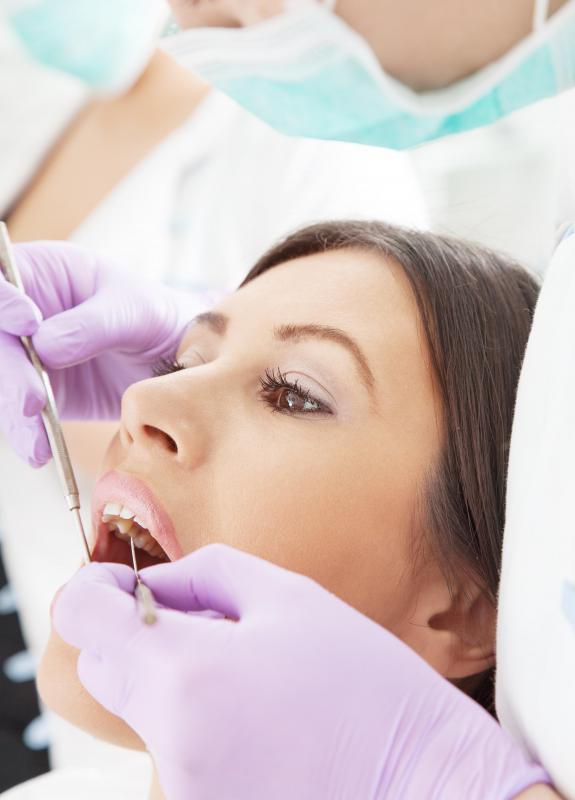At TheHealthBoard, we're committed to delivering accurate, trustworthy information. Our expert-authored content is rigorously fact-checked and sourced from credible authorities. Discover how we uphold the highest standards in providing you with reliable knowledge.
What is Gingival Hyperplasia?
Gingival hyperplasia is an enlargement of the gingiva, a type of soft tissue in the mouth otherwise known as the gums. This condition can be caused by a number of factors, ranging from pregnancy to systemic disease. Determining the cause of this condition is important for treatment, as treatment approaches can vary considerably. Many people do seek treatment for gingival hyperplasia because it can make it difficult to eat and it can be aesthetically unpleasing. Enlargement of the gingiva can also appear in some companion animals, especially dogs, in which case it requires the attention of a veterinarian.
In patients with this condition, the gums swell and become enlarged. In severe cases, the gums may start to cover the teeth. Some patients may also experience bleeding and tenderness in the gums as a result of the enlargement, especially if it is related to gingivitis. A dentist can examine a patient and confirm gingival hyperplasia, but it may be necessary to consult another medical specialist to explore the cause of the condition and to develop an effective treatment plan.

This condition can be associated with inflammatory processes, underlying diseases, and natural changes in the body which accompany puberty and pregnancy. Some people develop gingival hyperplasia in response to being on certain types of medications, and the condition can also be the result of malignant growth. To determine the cause, the patient may undergo various medical tests to check for possible underlying causes.

In some cases, gingival hyperplasia can be treated by changing medications or altering the patient's diet. Other cases may require surgery to remove the overgrowth of the gums, which can include reconstructive surgery to repair the remaining gums. Gingivectomy, in which the gingiva are trimmed to address this condition, can include sending samples of the tissue to a pathology lab to learn more about the cause.

Taking care of gum diseases and other oral problems is very important. These conditions can cause discomfort, but they can also contribute to systemic health problems. Infections in the mouth, for example, can enter the bloodstream, causing septicemia. If abnormalities along the gum line are detected, a dentist may recommend follow up visits to monitor the growth or shrinkage of the gums, along with testing to determine the cause. When gingival hyperplasia is spotted early, it may be possible to address it with less invasive techniques than in cases where the condition has been allowed to persist.
AS FEATURED ON:
AS FEATURED ON:



















Discussion Comments
@hamje32: What are some home treatments that are helpful?
Yes, it’s not a pretty sight, but I had gum hyperplasia for awhile until I switched some medication I was taking. The condition made it nearly impossible to floss my teeth without excessive bleeding, and so every time I went to the dentist he asked me why I wasn’t flossing.
The medication didn’t really create the hyperplasia--it just made an existing condition a lot worse. I’m now free from that condition thanks to the research I discovered online.
Post your comments